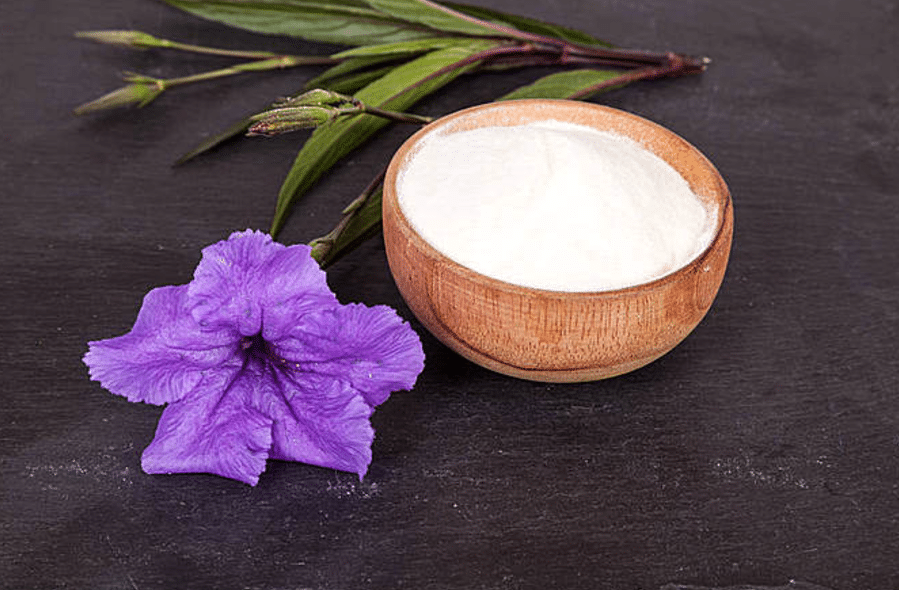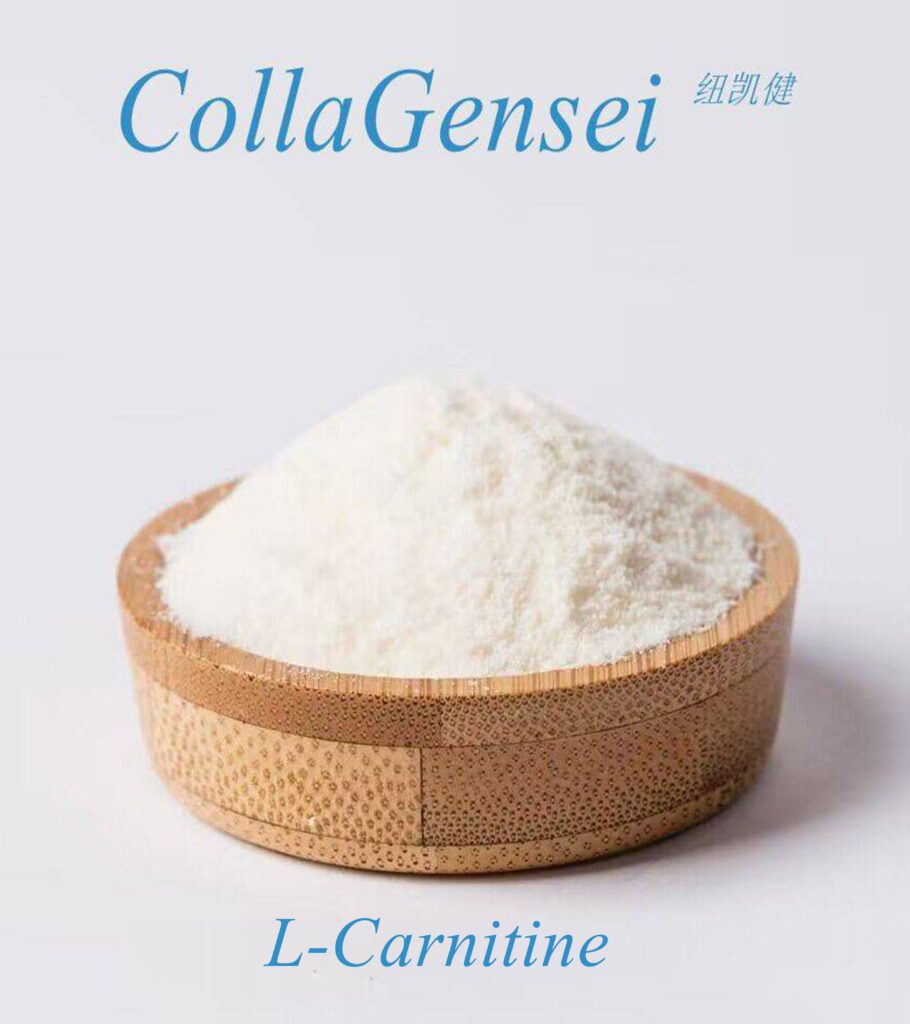Borage oil and N-acetyl-D-glucosamine (NAG) are both popular supplements, widely used for their beneficial effects on joint health, inflammation reduction, and skin health. While they share some common uses, they differ significantly in their composition, mechanisms of action, and specific benefits. In this article, we will compare borage oil and N-acetyl-D-glucosamine to help you understand how each supplement works and how they can support your overall health.
What is Borage Oil?
Borage oil is extracted from the seeds of the borage plant (Borago officinalis), a herb native to the Mediterranean region. It is known for its high content of gamma-linolenic acid (GLA), an omega-6 fatty acid that has potent anti-inflammatory properties. Borage oil is commonly used for its ability to support joint health, improve skin conditions, and regulate hormone levels.
The primary active compound in borage oil, GLA, is highly effective at reducing inflammation in the body, making borage oil a popular remedy for conditions like rheumatoid arthritis, eczema, and psoriasis. Additionally, it helps maintain skin hydration and elasticity, and is often used to treat dry or irritated skin.
What is N-Acetyl-D-Glucosamine?
N-Acetyl-D-glucosamine (NAG) is a modified form of glucosamine, a naturally occurring amino sugar that is found in the cartilage and connective tissues of the body. NAG is a key building block of glycosaminoglycans (GAGs), which are essential components of the extracellular matrix in tissues like cartilage, skin, and the lining of joints.
NAG is commonly used to support joint health, particularly in conditions like osteoarthritis. It is believed to help promote the production of hyaluronic acid, a substance that is critical for maintaining the lubrication of joints and skin. NAG is also used in skincare for its ability to promote healthy skin regeneration and reduce the appearance of fine lines and wrinkles.
Key Benefits of Borage Oil
- Anti-Inflammatory Effects: Borage oil is best known for its anti-inflammatory properties, which are primarily attributed to the high levels of GLA it contains. GLA helps modulate the body’s inflammatory response, making borage oil effective for conditions such as rheumatoid arthritis, where inflammation leads to pain and joint stiffness.
- Skin Health: Borage oil is commonly used to improve skin hydration and elasticity. It is particularly helpful for treating skin conditions like eczema, psoriasis, and acne, as it reduces inflammation and helps restore the skin’s natural barrier. Borage oil can also improve skin texture and tone, making it a popular ingredient in moisturizers and anti-aging products.
- Hormonal Balance: The GLA in borage oil is thought to help balance hormones, particularly in women. Borage oil is commonly used to relieve symptoms of premenstrual syndrome (PMS) and menopause, such as mood swings, bloating, and hot flashes. It may help regulate hormonal fluctuations and alleviate these symptoms.
- Joint Health: Borage oil’s anti-inflammatory properties make it beneficial for joint health, particularly in conditions like rheumatoid arthritis. It helps reduce joint pain, swelling, and stiffness, and can improve overall joint mobility.
Key Benefits of N-Acetyl-D-Glucosamine
- Joint Health and Cartilage Repair: N-acetyl-D-glucosamine is primarily used for its ability to support joint health. It is a key component of cartilage and is believed to promote the production of hyaluronic acid, which is critical for lubricating joints and maintaining healthy cartilage. NAG may help alleviate pain and inflammation associated with osteoarthritis by promoting the regeneration of cartilage and improving joint function.
- Skin Health: NAG is also used in skincare for its ability to enhance skin hydration and promote healthy skin regeneration. It helps stimulate the production of hyaluronic acid, which is important for maintaining skin moisture and elasticity. NAG is often included in anti-aging products due to its ability to reduce the appearance of fine lines and wrinkles.
- Gut Health: NAG has been studied for its potential benefits in gut health. It is thought to support the intestinal lining, which can help with conditions like irritable bowel syndrome (IBS) and leaky gut. By promoting the health of the gastrointestinal tract, NAG may reduce inflammation and improve digestive function.
- Anti-Inflammatory Effects: Like borage oil, NAG also has anti-inflammatory properties, which make it effective for reducing inflammation in the body. This is particularly useful for individuals suffering from joint conditions like osteoarthritis, where inflammation plays a key role in pain and stiffness.
Differences Between Borage Oil and N-Acetyl-D-Glucosamine
- Source and Composition: Borage oil is plant-based and derived from the seeds of the borage plant. Its primary active ingredient is gamma-linolenic acid (GLA), an omega-6 fatty acid. N-acetyl-D-glucosamine, on the other hand, is a derivative of glucosamine, a natural amino sugar found in the cartilage and connective tissues of the body. These two supplements differ in their composition and the way they affect the body.
- Mechanism of Action: Borage oil works by reducing inflammation through its high GLA content, which helps regulate the body’s inflammatory response. It also improves skin health by enhancing moisture retention and elasticity. NAG works primarily by supporting the production of hyaluronic acid and collagen, both of which are essential for joint lubrication and skin hydration. NAG helps promote cartilage repair and regeneration, while also reducing inflammation in the joints and improving skin health.
- Targeted Benefits: While both borage oil and NAG offer benefits for joint health, they do so in different ways. Borage oil is primarily used for its anti-inflammatory properties, helping to reduce swelling and pain associated with joint conditions like rheumatoid arthritis. NAG, on the other hand, is more focused on promoting the repair and regeneration of cartilage, making it particularly beneficial for conditions like osteoarthritis. In terms of skin health, both supplements help with hydration and elasticity, but NAG may have a slight edge in promoting skin regeneration.
Which Supplement is Right for You?
The choice between borage oil and N-acetyl-D-glucosamine depends on your specific health goals and needs.
– Borage Oil: If you are looking for a supplement that can reduce inflammation, improve skin hydration, and balance hormones, borage oil may be the better option. It is particularly effective for individuals with inflammatory conditions like rheumatoid arthritis or eczema, and can also help with hormonal imbalances such as those experienced during PMS or menopause.
– N-Acetyl-D-Glucosamine: If your primary focus is joint health, cartilage repair, or improving skin regeneration, NAG may be a better choice. It is especially useful for individuals with osteoarthritis or other degenerative joint conditions, as it helps promote cartilage regeneration and joint lubrication. Additionally, NAG may be beneficial for gut health, supporting the intestinal lining and reducing inflammation in the digestive system.
Conclusion
Borage oil and N-acetyl-D-glucosamine are both effective supplements, but they target different aspects of health. Borage oil is known for its strong anti-inflammatory effects, which can benefit skin health, joint health, and hormonal balance. NAG, on the other hand, is particularly effective for promoting joint health by supporting cartilage regeneration and improving lubrication, while also offering skin and gut health benefits.
If you are managing inflammatory conditions, skin issues, or hormonal imbalances, borage oil may be a good choice. However, if you are looking to support joint regeneration, reduce cartilage wear, and promote skin hydration, NAG might be more suitable. In some cases, combining both supplements could provide complementary benefits for overall joint and skin health. Always consult with a healthcare provider to determine which supplement is best for your individual needs.




